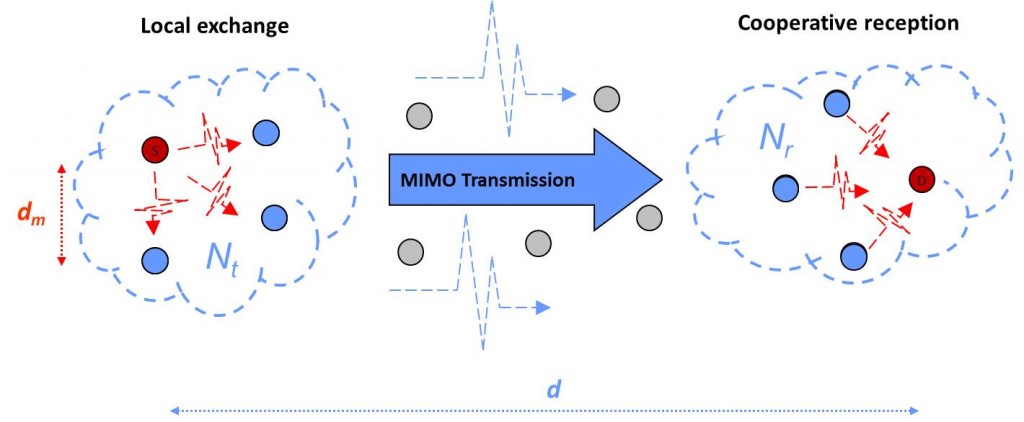The transmission mode classically used in wireless sensor networks to transmit a message from a source S to a destination D separated by a fairly large distance d is multi-hops or multi-stages. However, some cooperative techniques allow an increase in the radio range of devices or a reduction in energy spent to reach the same distance.
- Relay techniques: Amplify-and-Forward (AF) and Decode-and-Forward (DF)
- Cooperative MIMO strategies
- Opportunistic routing

Cooperative MIMO transmission. Phase 1: the source exchanges information with its neighbors. Phase 2: synchronous MIMO transmission towards the destination group. Phase 3: the receivers send the received signals towards the destination which combines the signals received.
The GRANIT team addresses these different possibilities taking especially into account the energy criterion, the most important constraint in wireless sensor networks. Besides performance evaluation through analytical derivations, the cooperative strategies are also simulated through network simulators. This implies the design of dedicated MAC protocols, but makes us able to estimate with accuracy the real gain of cooperation. Among the metrics we use, the energy-delay trade-off is very interesting for wireless sensor networks.


